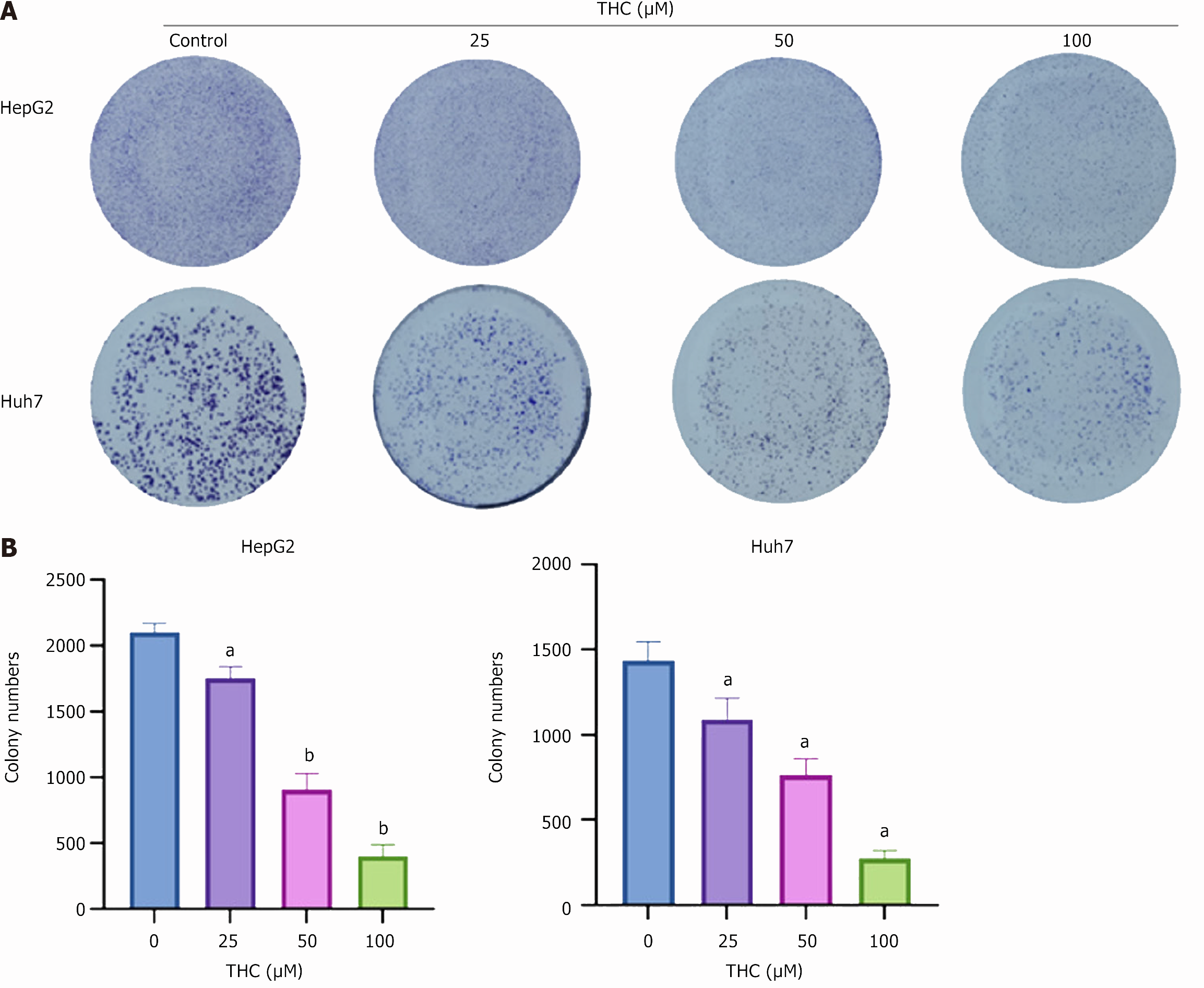Copyright
©The Author(s) 2025.
World J Gastrointest Oncol. Mar 15, 2025; 17(3): 101174
Published online Mar 15, 2025. doi: 10.4251/wjgo.v17.i3.101174
Published online Mar 15, 2025. doi: 10.4251/wjgo.v17.i3.101174
Figure 7 Cell cloning experiment to detect the proliferation capacity of HepG2 and Huh7 cells treated with different concentrations of tetrahydrocurcumin.
A: Tetrahydrocurcumin (THC) had a greater effect on the proliferation of hepatocellular carcinoma cells as the treatment concentration increased (25, 50, or 100 μmol/L for 2 weeks); B: Graph of the cell cloning ability of HepG2 and Huh7 cells treated with THC (25, 50, or 100 μmol/L) for 2 weeks. All data are presented as the mean ± SD, n = 3. Compared to the control group, aP < 0.05; bP < 0.01; THC: Tetrahydrocurcumin.
- Citation: Bao ZC, Zhang Y, Liu ZD, Dai HJ, Ren F, Li N, Lv SY, Zhang Y. Tetrahydrocurcumin-induced apoptosis of hepatocellular carcinoma cells involves the TP53 signaling pathway, as determined by network pharmacology. World J Gastrointest Oncol 2025; 17(3): 101174
- URL: https://www.wjgnet.com/1948-5204/full/v17/i3/101174.htm
- DOI: https://dx.doi.org/10.4251/wjgo.v17.i3.101174









